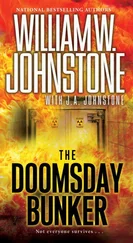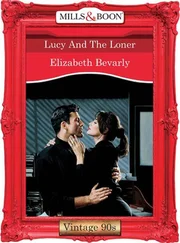“There is such a place?”
“Oh, yes. One of the biggest drinking and gambling establishments in the area. Other things go on there as well, if you get my drift.”
Conrad reached in his pocket and took out the ivory token. “Is this from there?”
Nash barely glanced at the token before he nodded. “Sure. How did you get hold of one?”
“Never mind that now. What’s its purpose?”
“Twofold, actually. All the people who work at the Golden Gate carry them, and the owner also hands them out to certain customers so they can gain entrance to the second floor, where the real drinking and gambling and those other things I mentioned go on.”
“The owner,” Conrad repeated.
“That’s right. If you have one of those tokens, you must know him. His name’s Dex Lannigan.”
Dex Lannigan. The name echoed in Conrad’s head.
He had found D.L.
Chapter 13
Conrad tried to keep the reaction he felt from showing on his face. “Dex Lannigan, eh?”
“Are you telling me you don’t know him?” Nash asked with a puzzled frown.
“That’s right.”
“Then how did you get that token?”
“That’s part of the story I’ve promised you when the time is right. What can you tell me about Lannigan?”
Nash grunted and spoke quietly. “He owns a successful saloon on Grant Street, smack-dab between the Barbary Coast and Chinatown. That ought to tell you everything you need to know about the man. Despite a veneer of smoothness, Dex Lannigan is no more honest than he has to be. He’s shrewd, ruthless, and dangerous. I suspect some of his competitors found that out to their regret. Before their bodies were dumped in the bay or out at sea, that is.”
“So you think he’s a killer?”
Nash leaned back in his chair. “I don’t know if he’s ever killed anyone personally, although it wouldn’t surprise me if he had. But I’m confident he’s ordered plenty of executions. So are the police, but they haven’t been able to prove it.”
“How long has he been around?”
Nash cocked his right ankle on his left knee and toyed with a pencil on the desk. “That’s an interesting question. He bought the Golden Gate about three years ago. Old Cletus Snyder owned it before that, but Snyder was in bad health and wanted out of the game. Lannigan came out of nowhere and took over the place. Some of us looked into his background afterward and found he’d been involved with some of the gangs along the Barbary Coast, but only as a low-level hoodlum. There was nothing in his history to indicate he had the money to buy a place like the Golden Gate or the skill to run it. Obviously he had both, since he’s made it more successful than it already was.” Lowering his voice he went on. “Some important people in San Francisco have been known to patronize the private rooms of the Golden Gate. I suspect Lannigan has a pretty good blackmail racket going on.”
Conrad nodded. He was intensely interested in everything Nash had said so far. The timing of Dex Lannigan’s rise to power was very suspicious. Pamela had arrived in San Francisco about three years ago, Conrad thought. If she had somehow made contact with Lannigan, she could have bankrolled his purchase of the Golden Gate Saloon. She wouldn’t have done that without getting something in return, though, such as his promise to send killers after Pamela’s former fiancé if Conrad showed up in the city by the bay looking for his missing children.
It was also possible Pamela had enlisted Lannigan’s help in finding a place to hide the twins. Conrad knew he was going to have to have a faceto-face talk with Mr. Dex Lannigan, and soon.
“What else can you tell me about him?”
Nash shrugged. “There’s not much else to tell. His wife’s a bit of a social climber. He’s managed to get them invited to some parties where a cheap sharper like him has no business being. That’s another reason I think he indulges in a little blackmail. Sometimes instead of money he demands at least an illusion of respectability for himself and his wife.”
That was an interesting angle. “You don’t know if Lannigan’s going to be attending one of those society parties any time soon, do you?”
“Not my department,” Nash replied with a shake of his head. He smiled. “But I know how we can find out. Come on.”
They stood, and Nash led him out of the big editorial room and into a corridor lined with smaller offices.
“Where are we going?” Conrad asked.
“To see Francis Carlyle. I’m sure you remember her.”
As a matter of fact, he did. Francis Carlyle wrote a popular column for the Chronicle about the doings of San Francisco’s high society. Not many women were involved in journalism, but Mrs. Carlyle, a widow, held an important and respected position among the city’s elite. Conrad had met her on several occasions when he’d accompanied his mother to San Francisco, before Vivian Browning’s vicious murder at the hands of an outlaw gang ... a murder which had later been avenged by Frank Morgan.
Conrad didn’t like to think about those days. Some of those same outlaws had kidnapped and tortured him, mutilating one of his ears before Frank was able to rescue him. He kept his hair long enough to hide that deformity.
If he had found himself in such a situation now, he would have figured out a way to kill those varmints himself, rather than relying on Frank to save him. He had changed a great deal since then.
But not enough to keep Francis Carlyle from recognizing him when Nash ushered him into her office after knocking on the door and being told to enter. Mrs. Carlyle, a still-attractive woman in her late forties with a husky voice and dark, curly hair only lightly touched with gray, stood up behind her desk. “Well, for heaven’s sake. If it’s not Conrad Browning himself.” She came around the desk and extended a hand. “Conrad, my dear boy, how are you?”
Conrad took her hand and bent to brush his lips across the back of it in the courtly European manner. He recalled that while Mrs. Carlyle was quick to use her column to cut through what she regarded as pretense and hypocrisy, she enjoyed being played up to. He held her hand in both of his as he straightened. “I’m fine, Mrs. Carlyle. You haven’t changed a bit, as beautiful as ever.”
She smiled, obviously pleased, then grew solemn. “My deepest condolences on your loss.”
Conrad nodded. “Thank you.”
“I was very happy when I heard you were alive after all. That blasted Claudius Turnbuckle was tight-lipped about it for a long time.”
“At my request,” Conrad said.
“Yes, well, I’m accustomed to people talking to me. I maintain a position of absolute trustworthiness.”
Mrs. Carlyle could be trusted, all right ... trusted to gossip—which, of course, was exactly why Conrad was in her office. He understood why Jessup Nash had taken him there.
“Sit down and tell me what brings you to San Francisco,” Mrs. Carlyle went on. She waved a hand at Nash. “Thank you for bringing Conrad to see me, Jessup. You can go now.”
Nash looked pained, but didn’t argue. “Stop by my desk on your way out,” he told Conrad, who nodded in agreement.
After Nash left, Conrad settled on the opposite side of the desk. “I’m relying on your absolute discretion here, Mrs. Carlyle.”
“My goodness, call me Francis. It’s not like you’re a callow youth anymore. You’re a grown man.” The blatant interest in the woman’s gaze made it clear how aware of that fact she was.
Conrad smiled. “All right, Francis. I want to ask you about a man named Dex Lannigan.”
A look of surprise and distaste appeared on Mrs. Carlyle’s face. “Dex Lannigan?” she repeated. “Why are you interested in a cheap hoodlum like that?”
Читать дальше












